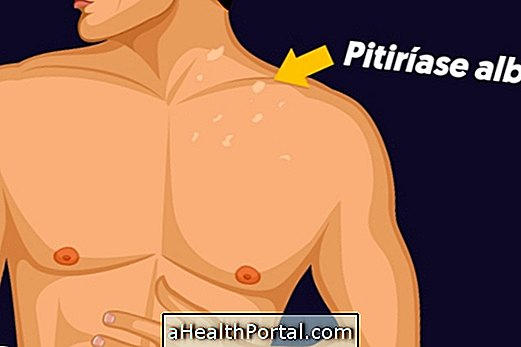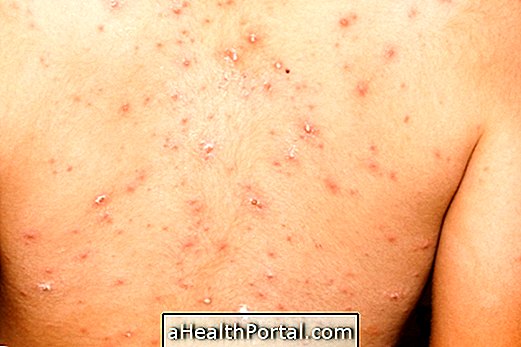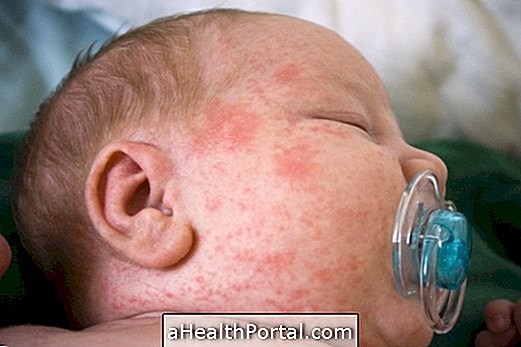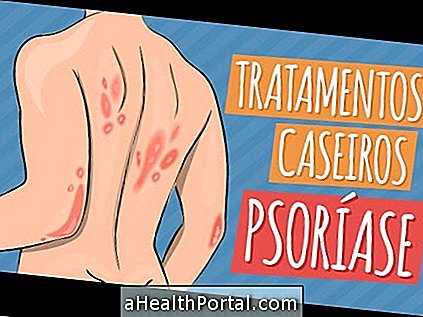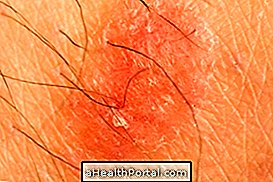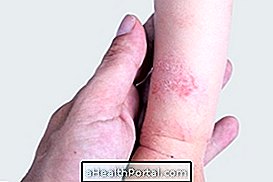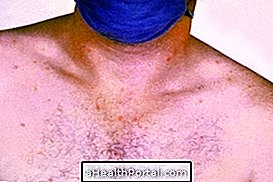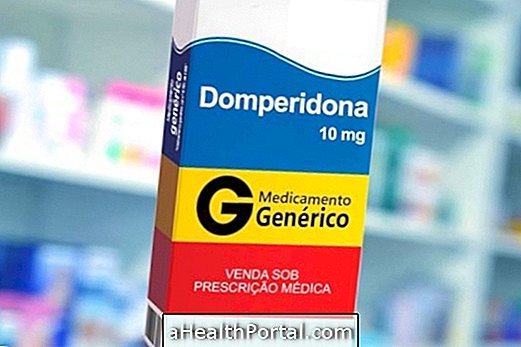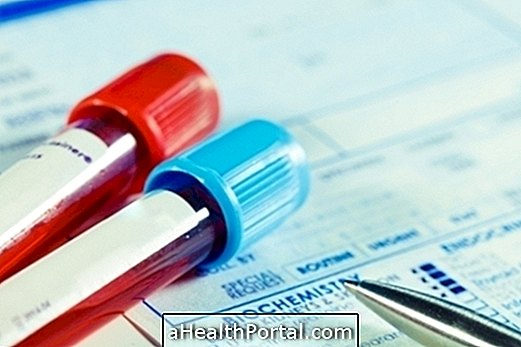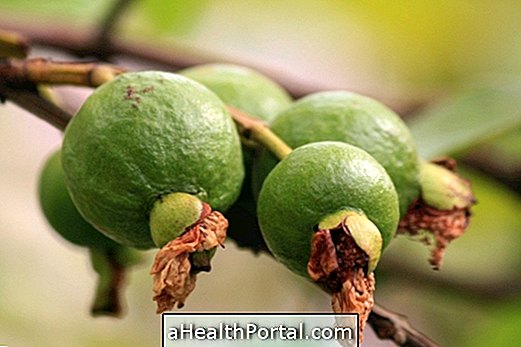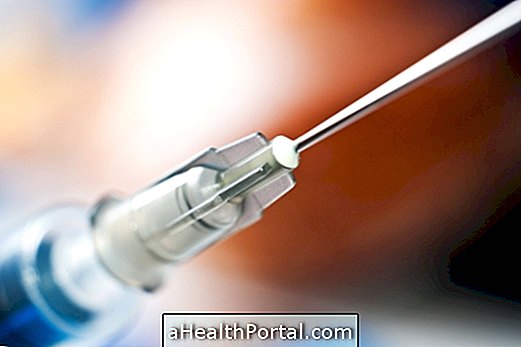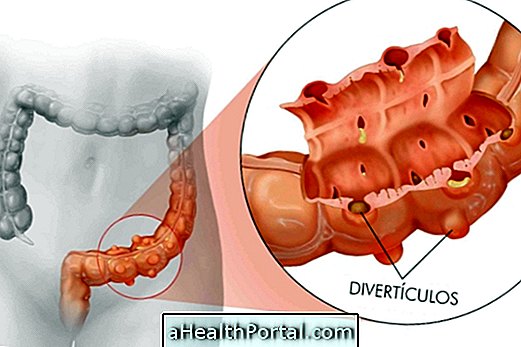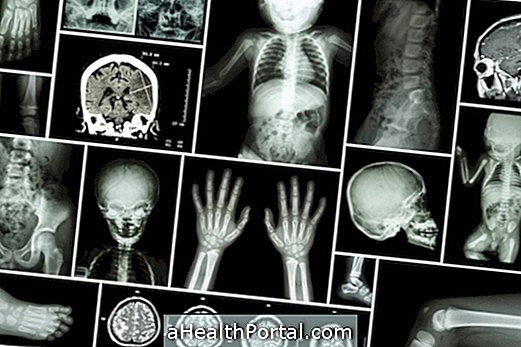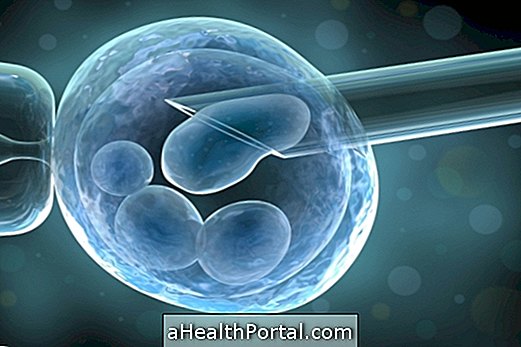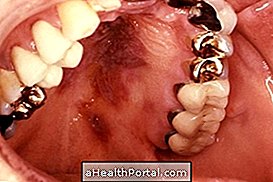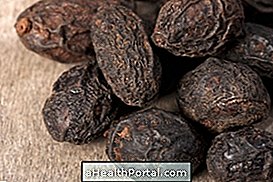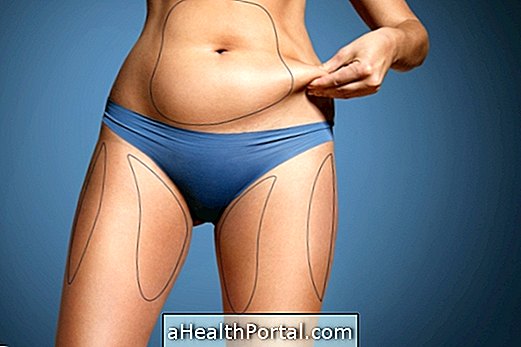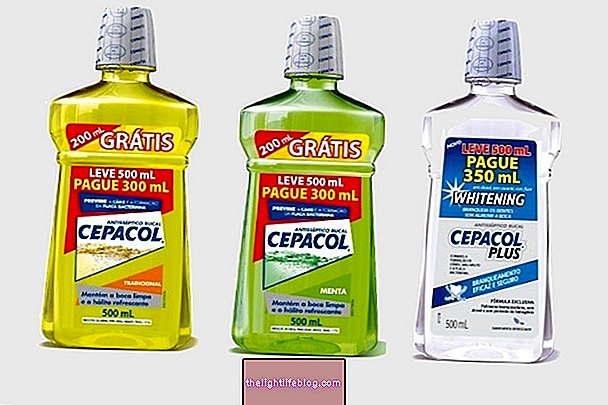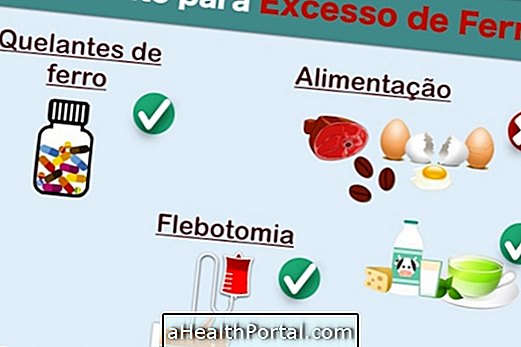Genital psoriasis, also called inverted psoriasis, affects both men and women and is usually characterized by:
- Small smooth, shiny red spots on genital area;
- Intense itching at the lesion site;
- Dry and irritated skin.
These symptoms appear mostly in overweight people, and worsen with sweating and frequent use of warm, tight clothing.
The diagnosis of this disease is made based on the symptoms and the clinical evaluation, and the treatment involves the use of medicines and phototherapy sessions.
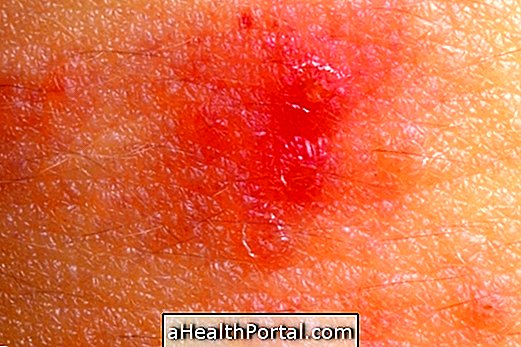
Which places are most affected
The main sites affected by inverted psoriasis are:
- Púbis: a region just above the genitals, where the hairs are, presents symptoms similar to capillary psoriasis;
- Thighs: wounds usually arise in the folds of the thighs, close to the genitals;
- Vulva: the spots are usually red and smooth and reach only the outside of the vagina;
- Penis: It usually arises on the glans, but can also affect the body of the penis. It is characterized by several small red spots, with scaly or smooth and shiny skin;
- Buttocks and anus: Wounds appear in the folds of the buttocks or near the anus, causing severe itching and may be mistaken for hemorrhoids;
- Armpits: the symptoms worsen with the use of tight clothes and with the presence of sweat;
- Breasts: usually arise in the lower part of the breasts, where the skin is bent.
In man, genital psoriasis usually does not cause sexual dysfunction, however the partner may be concerned, making the most intimate moment difficult. In addition, some of the medications used in treatment may have some side effects that make erection difficult.

How is the treatment done?
The treatment of genital psoriasis has good results and includes the use of corticosteroid-based ointments, such as Psorex, which should be used in the affected region, according to the gynecologist's orientation, in the case of the woman, or the urologist, in the case of men.
In more severe cases, where wounds do not improve with the use of ointments or when other regions of the body are also affected, the dermatologist may also prescribe the use of capsule medications.
Another alternative is the therapy with ultraviolet light, which are the UVA and UVB rays. This treatment is done in specialized dermatology clinics and the duration and number of sessions depends on the patient's skin type and the severity of the lesions.
How to recover faster
Watch the video for tips that can make all the difference in treatment:

Some other tips for decreasing skin irritation and recovering faster are:
- Wear light cotton clothing and do not squeeze;
- Avoid sweating or bathing and applying medications soon after practicing physical activity;
- Keep the affected area always clean;
- Avoid the use of perfumes, soaps and creams that are not indicated by the doctor;
- Avoid the use of scented absorbents as they may irritate the skin;
- Wash the genital area to remove all medications before intimate contact;
- Use a condom and lubricate the area well during intimate contact;
- Thoroughly wash the region after intimate contact and reapply the medication.
It is also important to remember that tar-based ointments for psoriasis should only be applied in the genital area according to medical guidance, as their excessive use can cause irritation and worsening of the lesions.
To help with treatment, see the best home remedies for psoriasis.
